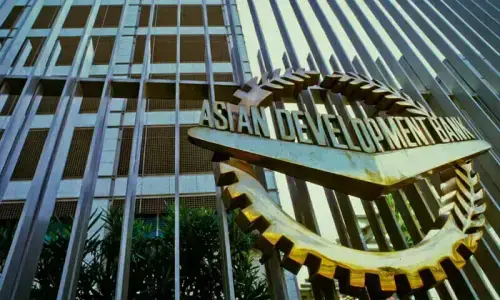THE latest edition of the United Nations’ World Economic Situation and Prospects report for 2024 has painted a sobering picture of Pakistan’s economy as it continues to face multiple challenges, including inflationary pressures, currency depreciation, and high levels of sovereign debt. The report projects Pakistan’s economy to grow by a modest 2pc this year and a slightly improved 2.4pc in 2025. This is in line with the projections made by multilateral agencies like the IMF and the World Bank, as well as the State Bank, and marks a slight “improvement” over economic contraction of 0.2pc during the last fiscal year ending on June 30, 2023. On top of low growth, it has warned of a potential rise in food insecurity. The UN’s flagship report primarily discusses international economic trends as the global economy is projected to slow from an estimated 2.7pc in 2023 to 2.4pc in 2024, trending below the pre-pandemic growth rate of 3pc. It also deliberates on the short-term risks and structural vulnerabilities to the global economy, pointing out that the sombre global economic outlook for the near term continues to be impacted by high interest rates, further escalation of conflicts, sluggish international trade, and increasing climate disasters. Needless to say that the headwinds facing the global economy will likely jeopardise meaningful progress towards the Sustainable Development Goals (SDGs).
With Pakistan already grappling with one of its most serious balance of payments crises that has forced the authorities to contract the economy last fiscal year with a view to avoiding a potential sovereign default, the grim global outlook poses additional challenges. However, the current crisis also offers a major opportunity to the country’s policymakers to reset the economic policy direction and fix the long-standing structural issues dragging down the country. Other nations, including India, Malaysia, the Philippines, Turkiye and Indonesia, have successfully used their respective crises in the past to put their economies back on sustainable, long-term growth trajectories. Even Bangladesh has left us behind as far as social and economic indicators are concerned. It must however be said that economic stability largely hinges on political certainty. No government can make tough, unpopular decisions and implement reforms in uncertain political settings.
Published in Dawn, January 8th, 2024




























